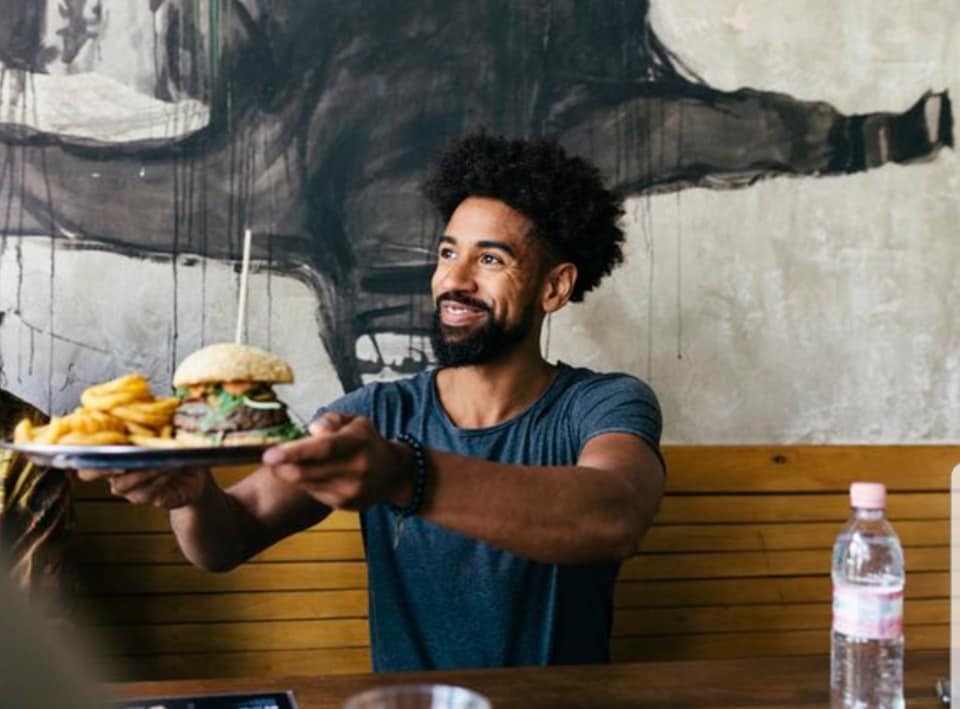https://www.livestrong.com/article/13716444-4-things-no-one-warns-you-about-losing-weight/
Reaching a weight-loss goal is beyond rewarding — it’s empowering, uplifting and satisfying. To have accomplished such a task calls for a serious celebration, so GO YOU! As you likely know by now, being a healthy weight involves a lot of benefits, including improved sleep, mood and self-confidence.
But there can also be some not-so-nice side effects of weight loss that don’t often make headlines. From loose skin to lack of emotional support, it’s important to know what can occur with weight loss and how to tackle these issues with confidence and positivity. After all, there are far more positive things that come with healthy weight loss than negative!
Read more: 9 Awesome Things That Happen When You Lose Weight
1. Loose Skin
The appearance of loose skin after losing weight can vary from person to person, but it mostly depends on how fast you lose weight and how much weight is lost. It can be tempting to lose as much weight as you can, as fast as you can, but shedding too much too quickly increases the chance you’ll end up with some loose skin.
“Most people losing a significant amount of weight will be stuck dealing with loose skin,” says weight-loss expert Ryan Gebo, RD. “You can expect to see the loss of skin elasticity on any weight loss greater than 20 pounds for most people.
What to Do About It: Avoiding rapid weight loss and picking up the free weights are both key to avoiding a lot of loose skin. “Weight-loss should be kept to one-to-two pounds a week for most people,” says Gebo. “The elasticity of the skin is mainly determined by age and genetics. Skin will tighten slowly over time for most, so losing weight slowly will ensure you’re not left dealing with too much skin at any single time.”
Regularly hitting the weight room during and after weight loss will build the lean muscle needed to produce a fit and toned physique, which can help fight the battle against loose or sagging skin, says Gebo.
But sometimes — if you have 50 pounds or more to lose, for example — loose skin is unavoidable. In that case, you may want to check with your doctor to see if surgical skin removal might be an option for you.
2. Anxiety Around Eating
Creating new, healthy habits is a great thing. But sometimes the weight-loss process can produce feelings of anxiety and fear, especially about food.
“If someone is intentionally trying to lose weight, it’s likely that this person is pretty preoccupied with their food, calories, nutrients and maybe even specific ingredients,” says Alyssa Ardolino, RD, nutrition communications coordinator for the International Food Information Council. “This intense preoccupation can bring about anxiety and/or fear around eating, which can negatively impact mental health.”
What to Do About It: Slow and steady wins the race! You’re better off with a slower and more mindful approach to health. “Improving your health is a great goal to have, but weight loss shouldn’t be your only measure of success,” Ardolino says.
“Instead, focus on incorporating small but practical health-promoting behaviors into your life — ones that can be sustained over time.” This will not only help you create a healthy balance with food, but help avoid the anxiety that can come with the weight-loss process.
A therapist can also be a useful ally to have on your weight-loss journey, particularly if you’ve struggled with weight issues or disordered eating in the past. She can help you put things into perspective and facilitate a healthier relationship with food.
3. Lack of Support
This may come as a shock, but unfortunately, not everyone is going to be supportive of your weight-loss efforts. And this lack of support from loved ones can be disheartening and can even derail your healthy habits — if you let it.
“Unfortunately, some friends and family may have a difficult time trying to understand your weight-loss and a lifestyle change,” says Gebo. Comments like “Aren’t you TOO skinny now?” or “Just ONE [unhealthy food item] won’t kill you!” can dim the positive feelings associated with weight loss.
What to Do About It: Don’t let the words or actions of others get you down. After all, you’ve accomplished something good for yourself!
When you’re faced with unsupportive friends and family, it’s important to know that it’s not always meant maliciously, says Gebo. It could be several things — even jealousy or concern. “If this problem continues, it’s best to talk it out with these people and help them understand why some comments can be hurtful to someone who has just lost weight.”
Regardless of how other people react, choose to focus on the positive. “Feeling good and fitting into new clothes is a great feeling for most people,” say Gebo. Just be patient and trust the process. Social changes can occur more slowly, so friends and family may need time to fully accept the “new you,” he says. And who knows? Perhaps they’ll come to you in the future for advice on their own weight-loss goals!
4. Spending Money on a New Wardrobe
Who doesn’t feel good in a fresh, new outfit? But for some, having to go and buy all new clothes can be very overwhelming (not to mention expensive!).
Although weight loss is generally a positive thing, if you need an entirely new wardrobe, you might have to dish out money you aren’t prepared to spend, and that can lead to anxiety, Gebo says.
What to Do About It: Whether you’ve lost weight already or are planning to, there are a few things you can do to save money and help ease anxiety, says Gebo.
“Hitting up some thrift stores in high-end towns can provide some awesome new outfits for a fraction of the price,” he says. Plus, a lot of thrift stores will also give you money or store credit for your old clothes. And waiting for sales at your favorite stores and even asking friends or family for hand-me-downs are other great ways to secure proper fitting clothes without having to spend a lot, Gebo says.



